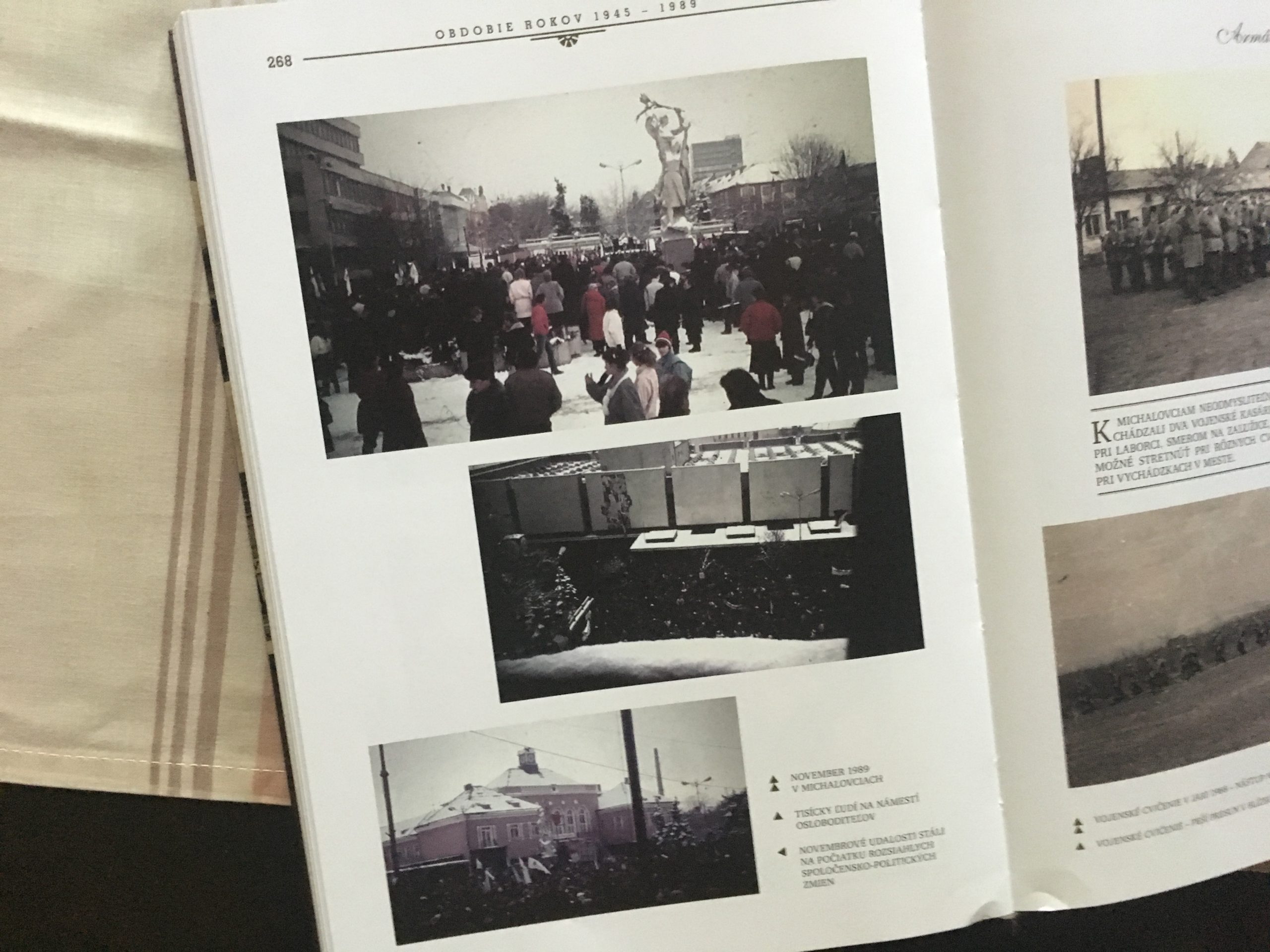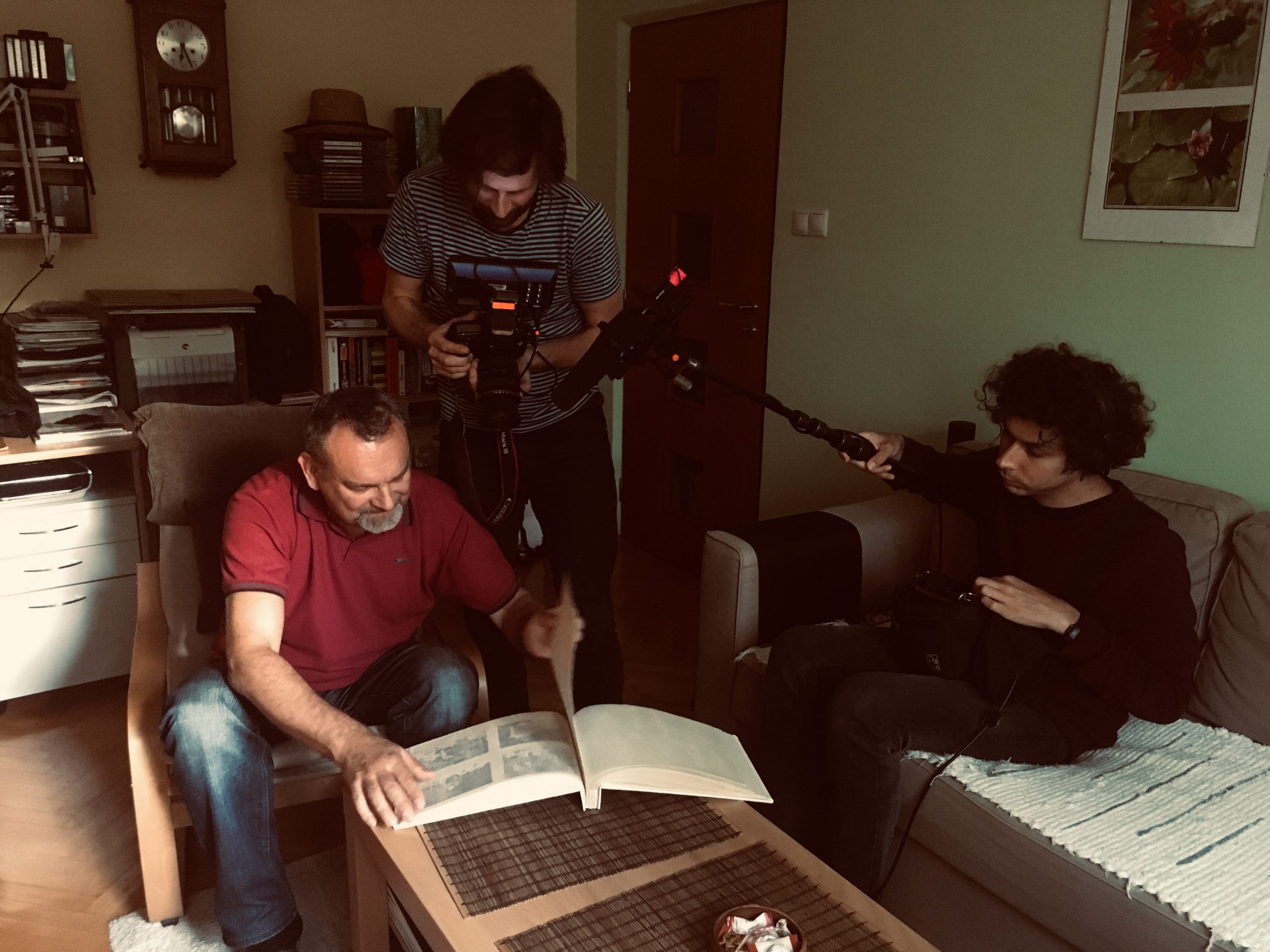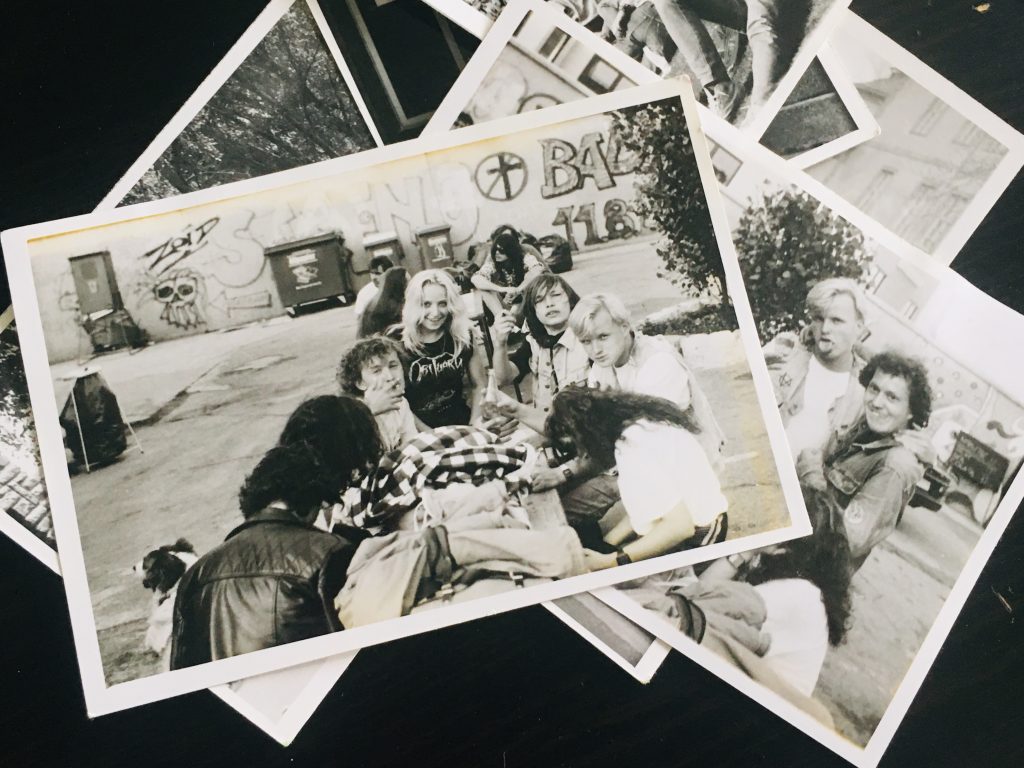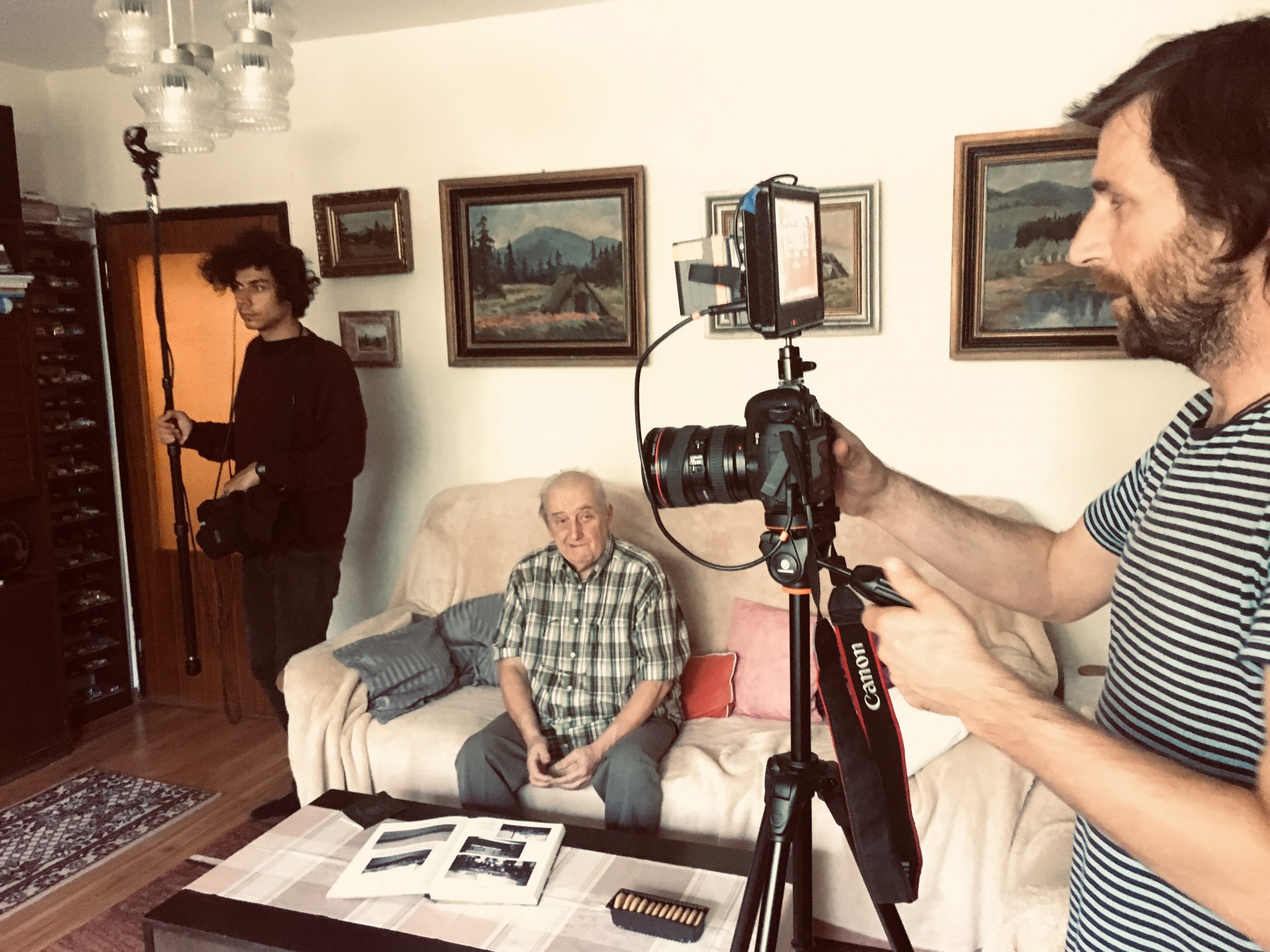In the beginning, there were questions that had not been answered before by grandma, mom, aunt, father or grandfather. What did you do in November 1989? What did your parents, colleagues and friends do? How did those days change your life?
The Ask Your Folks project, its film and trans-media form, the so-called The online-memorial events of 1989 were aimed at stimulating intergenerational dialogue on political events in Czechoslovakia, as well as processing intergenerational traumas of the country’s population, where the regime has changed more than five times in the last century.
Czechoslovakia and its socialist past is part of the mental equipment of our country, which still needs social reflection today. The events of November 1989 are still alive. Not only among our grandparents, but also with friends and colleagues. Despite the stories of ordinary people who have a strong memory of these days, the Ask Yours project has ripped these crucial events out of history textbooks and placed them in the context of family history, human destinies and their experiences that shape our country to this day. The authors chose the approach to elaborating the topic through human destinies because they consider our recent history to be insufficiently elaborated from the point of view of family life and its destinies.

The film was repeatedly broadcast on RTVS television and radio as audio recordings. In addition to these activities, the film was distributed in connection with discussions with monuments and local intellectuals in local community cultural centers in Slovakia. Within the project, special attention was paid to distribution to secondary schools throughout Slovakia, which brought the topic of November 1989 to dozens of secondary schools in a very innovative way.
The project enjoyed great media attention and was evaluated very positively by the general public and professional critics. In 2019, director Barbora Berezňáková won the Tatrabanka Foundation Award for this project. The film is available for free online for everyone, for schools and with didactic material.
From the online journal to November 1989:
“My boyfriend and I went to the squares, a lot of people everywhere, it was not known if anything could be achieved. There I met a classmate who was crossing the square and I looked at me ugly with the words: I’ll report you. I thought: Piss off, Viera! Today, my boyfriend at the time, of course, pro-communist-oriented, when I mentioned the young days, denied everything. He wasn’t there with me. Some people suddenly have incredible amnesia. They forgot all the bad things, they only remember that the communists gave the people flats. Sad. ”- Jarka
“A month before the “Velvet Revolution “, I was only 17 years old and a high school student. We were not such an ordinary family. In October 1989, the whole family was expelled from our Czechoslovak Republic. My father was a rebel in totalitarianism for years. He was the only one in Nitra who, when there were elections, did not vote for comrades. The whole family was under the supervision of secret service for years. We had the apartment intercepted and my father went to the interrogation regularly…. The passports were taken from us during the totalitarian regime. As the coup approached, father was summoned by comrades and given a replacement travel document. Suddenly we were able to travel to Austria. It was strange, only a month before the revolution of October 17, 1989, we were checked at the border and we did not have passports, only proof of deportation and we passed! I watched the whole revolution on Austrian television in Obenberg on the border with Germany. It’s been a tough year, but I’ve learned a lot. I attended an Austrian school and learned German. I was an athlete and I had the best season in the winter of 1989-1990. However, this experience broke up our family. The parents divorced. Sister – my twin has lived and worked in Austria for years. What about the parents? The father started a new family and worked in Austria for years. After the divorce, my mother married a German and lives in Germany. I settled in Slovakia. I am a teacher and I also teach German. It probably moved us somewhere. ”- Zuzana
“In March 1988, I accidentally witnessed the police brutally acting against the participants in the Candlestick Demonstration. Since then, I have tangibly realized the totalitarianism we lived in here. I listened to Free Europe, I signed Few sentences petition, I was in interrogation, I couldn’t travel, I couldn’t study at university. There was nothing like before. When the police brutally intervened against students in Prague on Národní třída in November 1989, I was again overcome by a sense of despair in the country we live in. I do not suffer from memory optimism, I have been touched by the restrictions of the communist regime. I was 24 at the time. Naturally, I immediately became part of the VPN (Public against violence) movement at work and after work I went to work as a volunteer at the VPN, where I later got a job. It was a great time. Work with the people you share your ideals with. Yes, disappointments came later. But those men and women who worked there without the a fee and without the certainty that they will be able to take care of their children deserve admiration. They took a huge risk at the time. I have met many world-class personalities. I’m grateful to have been there. I have almost no personal photos from those times. I was not one to press against the lenses. But I have a few postponed memories that I would like to share. A beekeeper signed by friends from the first hiking trip “west” to Hainburg, a greeting from Karel Kryl or some beautiful photos from those times. Freedom is not a given. We have to take care of it. It is a great thing when we can speak aloud or write what we have in our hearts, when we can read books freely, travel and learn. ”- Zdena

About the authors:
Barbora Berezňáková After graduating from the Academy of Performing Arts and the New York Film Academy, she works on documentaries, author’s video installations and music videos. Her feature debut, The Deed Did Not Happen, premiered at the Warsaw 2019 International Film Festival. She took part in the Berlinale Talents 2021 and currently lives and works in New York.
Pavlína Morháčová works as a graphic designer for the Slovak National Gallery, and is also behind the visuals of the Absynt Publishing House books focused on reportage literature. She is the author of the project of an alternative map of Bratislava M_P_ BA (www.mpba.sk). She is a co-author of the theme and the author of the graphic design.
Dáša Parizková is a graduate of the Faculty of Law at Charles University and has been working in film production, distribution of audiovisual works and advertising for several years in her professional life. She has worked on several feature films and feature series.
Eva Pavlovičová graduated from the Faculty of Law of Charles University and in directing and production at the Film School in Zlín. She worked as a producer and editor of the magazine KINEČKO, produced and distributed films in various Slovak production companies. She devoted herself to the creation of public policies for the creative industries at the Ministry of Culture (2017–2018) and is studying for a doctorate at the Institute of Public Policies, FSEV UK, focusing on the topic of Art and Social Change. She collaborated with Barbora Berezňáková as an associated producer on the film Skutok sa stal.


